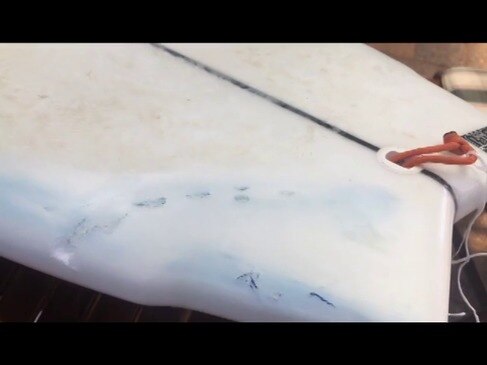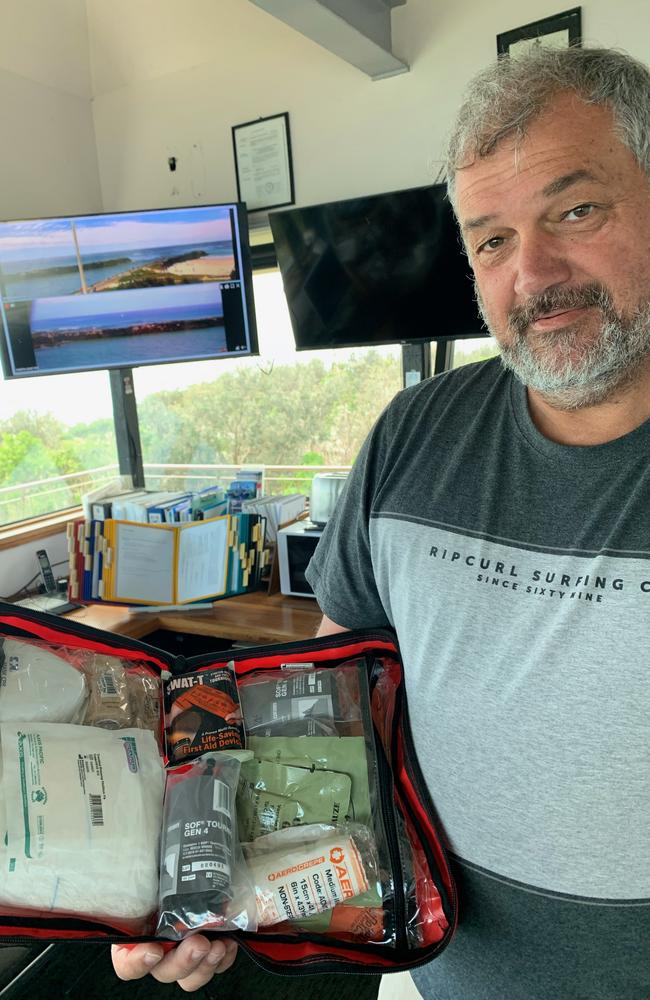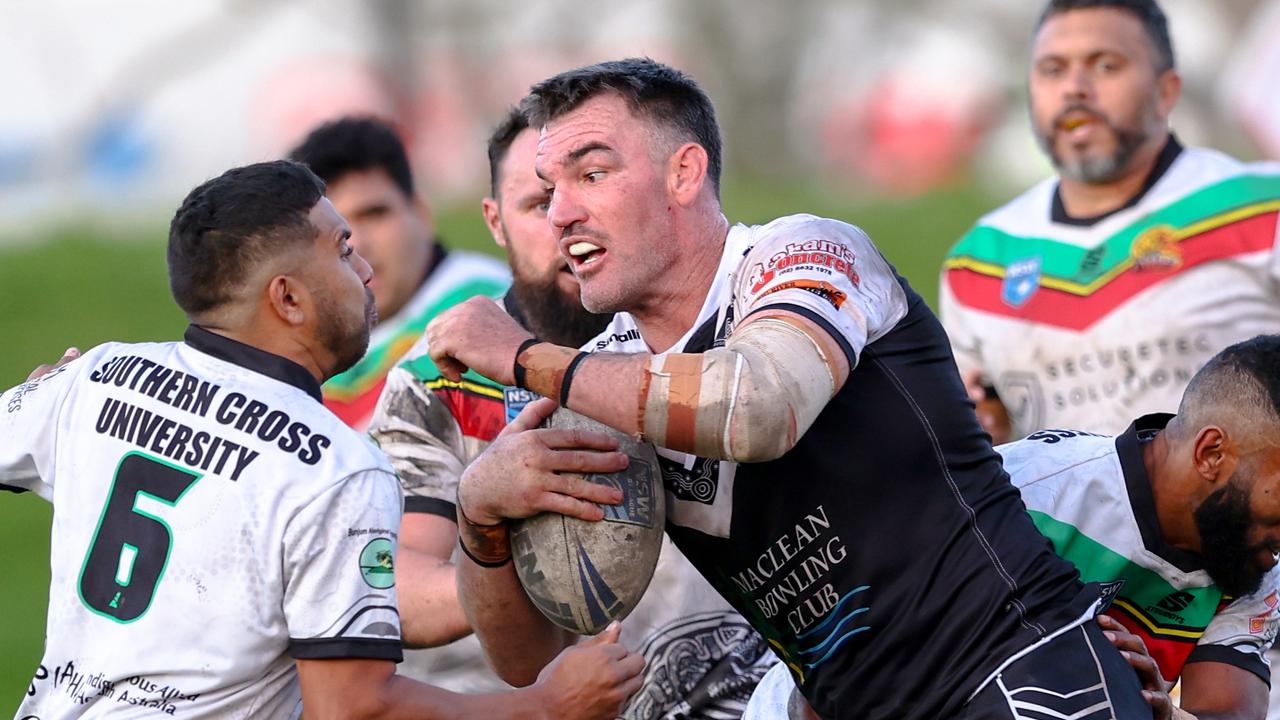Shark attack kits, drones rolled out to protect NSW beaches
Experts say shark attack kits are still needed even with a record number of hi-tech drones watching Northern NSW beaches.

Ballina
Don't miss out on the headlines from Ballina. Followed categories will be added to My News.
Northern NSW beaches will be the most closely monitored in the state under an expanded drone program that will give lifesavers a better chance to detect any dangers in the water.
But not all measures to protect swimmers will be proactive, with shark attack kits also being rolled out.
Surf Life Saving NSW Australian UAV Service Manager and Chief Remote Pilot Paul Hardy said the program was innovative when first trialed in 2014-15, in partnership with NSW Government (Department of Primary Industries).
It came about after the 2014-15 cluster of fatal shark attacks prompted pleas for drone patrols.

“It’s the largest UAV program with the largest number of pilots and drones in the southern hemisphere,” Mr Hardy said.
“We now have 80 pilots from Yamba to Tweed.”
A Surf Life Saving NSW spokesman said more people were confident about entering the water with drones operating on their beaches.
“The cost-effective, non-invasive unmanned aerial vehicle technology has proven to be successful at keeping swimmers and surfers safe, while minimising the impact on marine life,” the spokesman said.
Drones currently patrol Seven Mile Beach, Lighthouse Beach, Shelly Beach and Main Beach at Brunswick Heads, operating during the spring, summer, and autumn periods, and also during other periods as needed by the local Surf Life Saving Club.
The pilots will fly patrols seven days a week between 9am and 4pm.
The drones generally fly about 500m from the handset but negotiations are ongoing with the Civil Aviation Safety Authority for them to be flown beyond a line of sight.
Public access shark attack kit trials begin
Ballina surf school operator and founder of Shark Attack Response, David Rutter, said there was still a need for permanent public access kits on the ground.
He noted Surfing NSW had announced it would keep a similar kit for surf events.
“I think it is great that TacMed has supplied Surfing NSW to protect their affiliated surfers however there is a definite need to protect all beach goers with access to help,” he said.
“Ballina got rid of the shark nets but the young guys were still catching quite a few 2-3 metre sharks.”
Australian Veteran Surfers north coast president Tim Dalli said some people viewed the kits as having a negative impact on tourist dollars.
“It’s the same thing when defibrillators were introduced to shopping centres,” Mr Dalli said.
“Early access and interventions can really save a life, especially in the event that something does happen and an ambulance can be up to 25 minutes away.”
Shark Attack Response recently donated a public access kit to the Brunswick Heads Marine Rescue which will be installed on the side of the Marine Rescue Tower in Brunswick Heads as the first trial location.

Brunswick Heads Marine Rescue unit commander Jonathan Wilcock praised the generous donations of a shark attack kit and defibrillator after receiving a new camera system to watch Cape Byron and the bar at Brunswick Heads.
“If you can stop the bleeding immediately you can save someone’s life,” he said.
“You don’t need critical training to operate them (tourniquet bandages) and we’re working on a pictorial how-to for people.”
Mr Wilcock said sharks were typically seen early in the morning, straight after rain and in the mouths of rivers.
“The drones are great as a pre-warning,” Mr Wilcock said.
“I’d like to see kits in more remote locations like Woody Head, away from the main towns because that’s where an ambulance will take longer to get to.”
The NSW government’s shark management strategy has been increased to $21.4 million to expand the world’s largest suite of shark management tools and technologies across NSW beaches.


